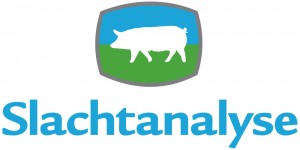Anything for better welfare of the pigs
 Several years ago, the CBL made agreements to increase the sustainability of pork. Those agreements were documented in the Pigs of Tomorrow program. Van Rooi Meat is striving to cooperate with as many pig farmers who stick to these agreements as possible.
Several years ago, the CBL made agreements to increase the sustainability of pork. Those agreements were documented in the Pigs of Tomorrow program. Van Rooi Meat is striving to cooperate with as many pig farmers who stick to these agreements as possible.
Along with the meat sector, the CBL, which unites food service and supermarkets, is using the Pigs of Tomorrow program to take steps towards improving circumstances for humans, animals, and the environment. It is essential that every link in this chain is able and willing to cooperate with any of the others. Explicitly, the partners seek to improve sustainability, whilst taking the costs into account.
More space, less boredom
It was agreed upon that by 2015, pigs would get more space and distraction. Porkers would get 25 percent more space and piglets would get up to 50 percent more space. Thus, pig farmers could prevent their animals from getting bored, they could also prevent unrest in the stables and make sure the pigs would not hurt themselves or others. Along with that, there are stricter demands to the docking of tails. Moreover, other procedures, like the grinding of teeth, would virtually be ruled out.
Stricter monitoring
Agreements have also been made concerning transport; it may take at most six hours. Furthermore, castration would be stopped in 2014, instead of 2015. Stricter controls would take place concerning the pigs’ drinking water. Better water means that the pigs are less likely to get ill, which improves the quality of the meat.
Meeting many standards
In the field of environment and health, it has been decided that pig farmers must be very reluctant in the usage of antibiotics. They may only be used occasionally starting in 2015. Since that year, the farmers have also had to use completely responsible soya for fodder. Pig farmers would also have to meet standards concerning ammonia emissions, a reduction of greenhouse gases, emissions of particulate matter, and the use of green electricity. We believe that, in exchange for fulfilling the consumers’ increasing demands for sustainable meat, a fair price is justified. Give a little, take a little.





